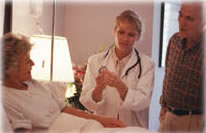


   |
Mucocutaneous Candidiasis - Causes, Symptoms and Treatment
Definition Mucocutaneous candidiasis is a rare condition caused by fungus and yeast. It is a heterogeneous group of disorders characterized by recurrent or persistent superficial infections of the skin, mucous membranes, and nails with Candida organisms, usually Candida albicans. There are certain people who are unable to fight off CANDIDA. Most cases of thrush get better quickly with anti-fungal treatment and do not recur, but in a small number of people, thrush recurs quickly and it is difficult to cure. It affects infants of age below three and young adults, is rarely seen in adults with other diseases. Patients usually have problems with thrush and yeast diaper rash as babies. Some patients also have problems with additional germs including bacteria and other fungi. Patients with mucocutaneous candidiasis have an increased incidence of autoimmune disorders including endocrine disorders, diabetes, hemolytic anemia, autoimmune hair loss or loss of skin pigment. Causes
Symptoms
Treatment
| |
Online Doctor || Teeth Care || Contact Us || Diabetes Care || Cellulite Guide || Chemotherapy || Acne Products ||
|
|
(c) Online-family-doctor.com All rights reserved
Disclaimer: Online-family-doctor.com is an information and educational purposes web site only. It is not intended to treat, diagnose, cure, or prevent any disease. Do not rely upon any of the information provided on this site for medical diagnosis or treatment. Please consult your primary health care provider about any personal health concerns. We will not be liable for any complications, or other medical accidents arising from the use of any information on this site.